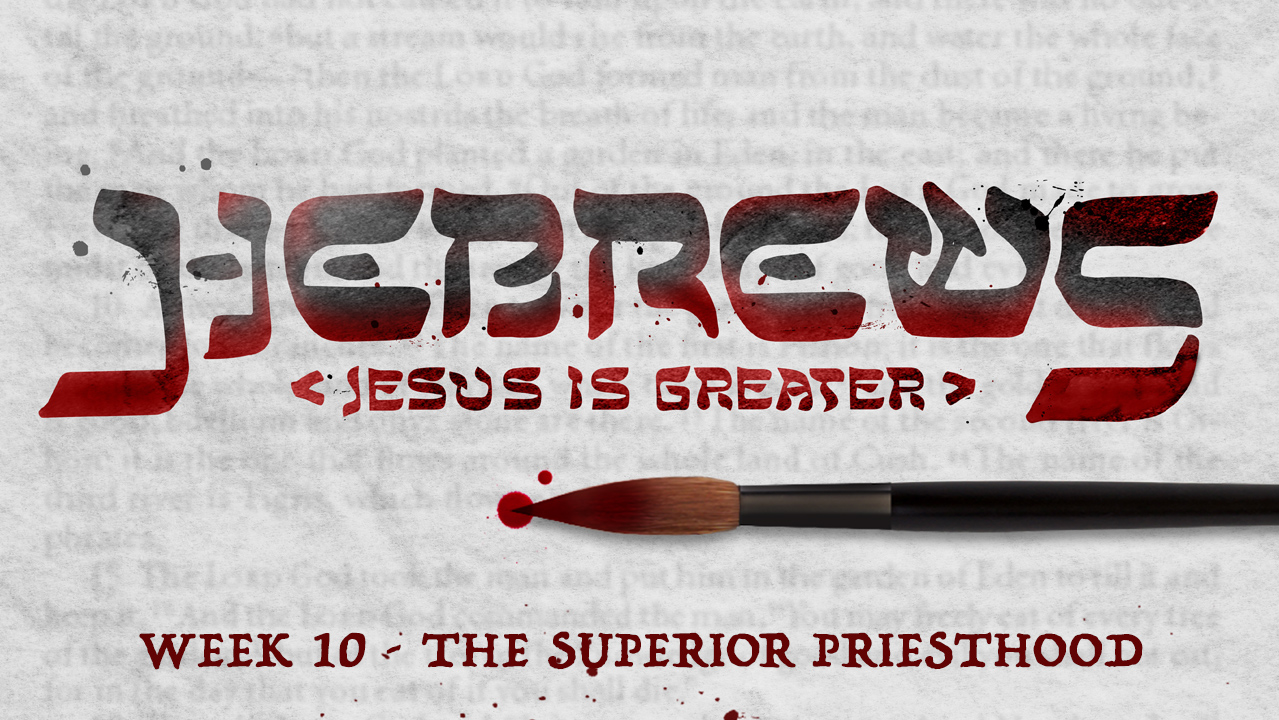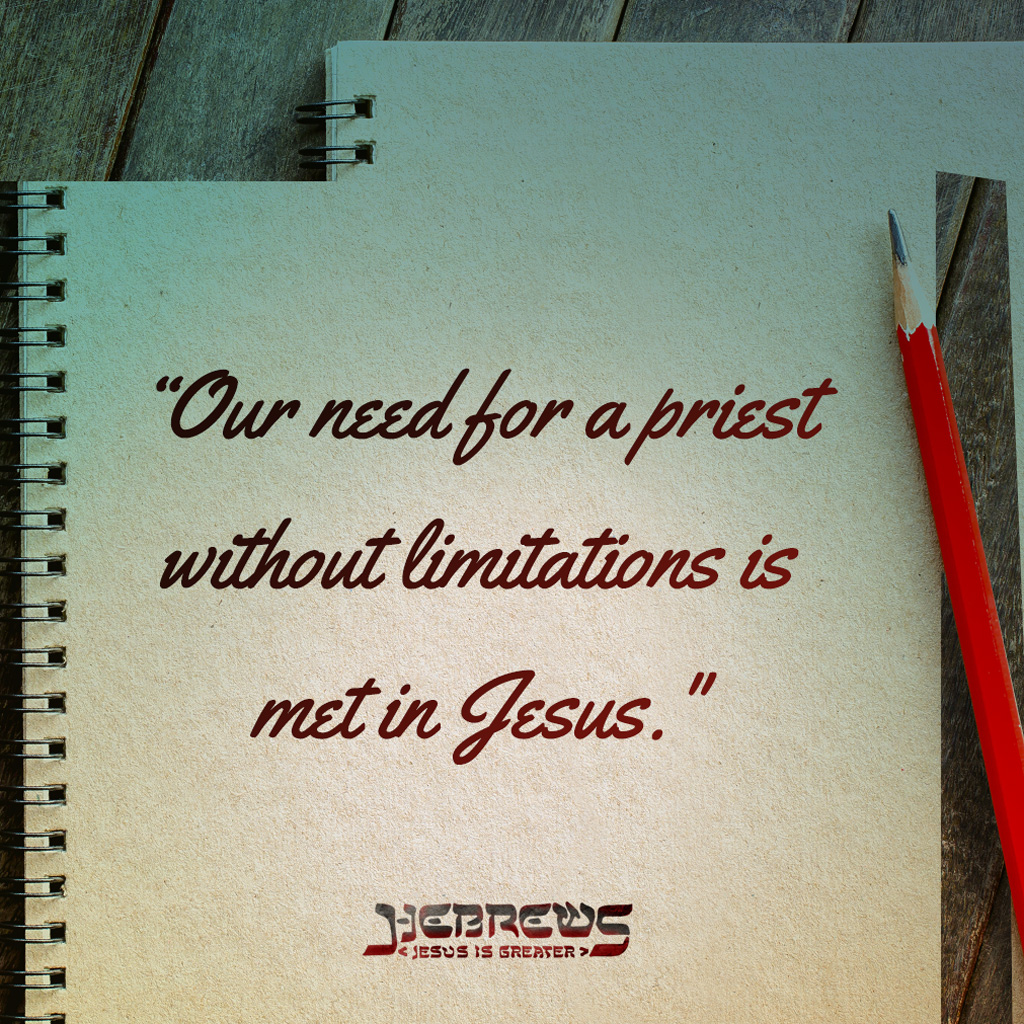
25 Apr Sermon Recap | Hebrews | The Superior Priesthood
As we have continued to walk through the book of Hebrews, the big idea remains the same: Jesus is Greater. Although the Hebrew audience is still caught in the old ways of a Levitical priesthood to grant access to God, the solution the author gives to them is the same solution for us. The author challenges them with a different kind of priesthood: a mediator who is qualified and clothed in perfection—a mediator who stands in our place and whose intercession for us endures forever.
Scripture References
You Reign | Grace Church Worship | iTunes
Psalm 146 • Psalm 47:5-9 • 1 Chronicles 29:10-20
God You Are My God | Vertical Church Band | iTunes
Zechariah 14:9 • Isaiah 2:2 • 1 Peter 1:18-20
Great Are You Lord | All Sons and Daughters | iTunes
Psalm 104 • Ezekiel 37:1-14 • Psalm 98 • Psalm 145:3
This is Our God | Hillsong Live | iTunes
2 Corinthians 12:9 • Titus 3:5 • Psalm 48:14
The Rock Won’t Move | Vertical Church Band | iTunes
Psalm 62:5-8 • 1 Peter 2:4-8 • 2 Samuel 22:47 • Matthew 7:24-27 • Psalm 18:2
Exalted Over All | Vertical Church Band | iTunes
1. The audience of Hebrews believes in the basic need for a mediator, but their understanding of the mediator needed is shallow and unqualified in comparison to Jesus. On the other hand, we are rooted in the humanist idea that we do not need a priest—that we are good enough on our own. Whether we tend toward shame or pride in our dependence on ourselves, we act like we do not need anyone between us and God. Are you characterized more by feeling shame and trying to work to earn God’s forgiveness or pride where you believe you are good enough and able to decide right and wrong for yourself? In what ways do you act like you do not need a priest?
2. Jesus Christ is in the past, present, and future, forever interceding on our behalf. If we act like we do not need a priest, we have to be able to answer the questions: “What can I do undo my past sin? What can I do about any future sin? On what basis can I intercede for myself? What would I even say if I had the opportunity for a direct audience with God?”
3. Jesus, our superior High Priest, understands temptation better than we do. He is tempted all the way to the end without ever giving in; He is qualified for our salvation because He is faithful in enduring forever. How does this compare to the Levitical priesthood? Why is it so important for us to have a forever High Priest? How should this change the way we respond to temptation?
4. We can breathe easy because we do not have to carry the weight of our sin. Gratefulness means responding to Him with living a holy life. How are you responding this week?
Thoughts to Consider
– Jesus is born into a sinful world, born under the Jewish law, born into a broken community with broken people, lives under flawed human government, encounters Satan face to face, and still He is faithful all the way until the end.
– God provides what we do not even know we need—a mediator.
– The writer of Hebrews challenges the Levitical priesthood with the Melchizedekian priesthood of Jesus, jerking away what they believed to be their access to God. This priesthood, shown to us in Genesis 14:17-20 and Psalm 110:4, identifies our need for a priest who is like Melchizedek: a priest, a king of justice and peace, powerful, and never-ending.
– The old system of priesthood and the law was only meant to cover sin for a season; it showed us how sin must be paid for, but it did not achieve perfection and was ultimately meant to be fulfilled in Jesus.

“We give up to temptation, but temptation gives up on Jesus.”
“Our eternity is rooted in the kind of power that cannot be destroyed, given to us by the One who cannot be destroyed.”
“”God provides what we do not even know we need—a mediator.”
“Jesus is qualified to be the blameless sacrifice and perfect High Priest for us.”
“Our need for a priest without limitations is met in Jesus.”



